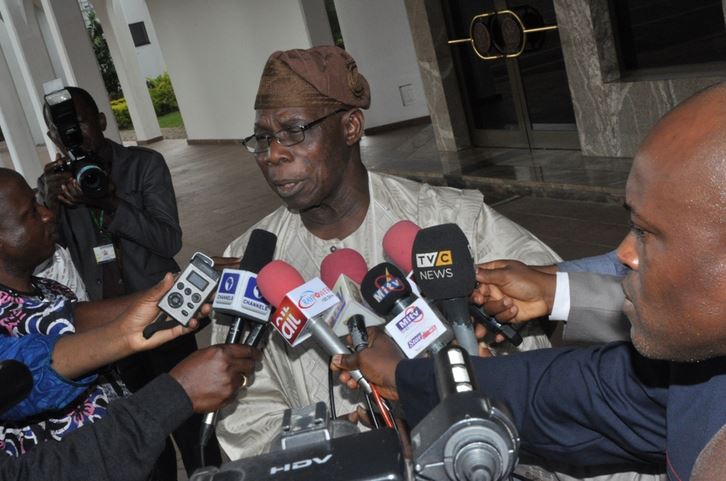Head of Education Desk at The Nation Newspapers, Kofoworola Belo-Osagie on Monday asked on Twitter if anyone can relate to the situation where journalists sometimes meet a person who makes an interview “sooo difficult that you wonder why you have to go through such embarrassment because you are trying to do your job.”
The response of the Media Career Development Network (MCDN) was that “This is very true and happens once in a while. People are different and sometimes their disposition may have to do with what they feel about the likely outcome of the story. “
“Embarrassment may be part of the hazards we have to endure as journalists as long as we get the job done,” MCDN stated.
Linda Akhigbe of Channels also responded that she can relate to the situation, explaining that “There’s a particular Senator I dislike interviewing. He makes it a point to throw jabs at you during an interview.”
Publisher of The Cable, Simeon Kolawole was once on a television interview panel that interviewed former President Olusegun Obasanjo.
Apparently knowing Obasanjo’s short fuse for questions he is not ready to answer, he opted to ask the question at the lunch table after the interview.
Obasanjo’s response was typical. He took a scornful look at him and told Kolawole that he must be stupid for asking such a question. “Will you eat your food and get out of this place,” Obasanjo said.
Even without asking Koroworola what informed the question, I can guess that she must have felt frustrated by the response of a particular person who she has no choice but to interview for a report and has to endure whatever attitude the interviewee puts up.
Making interview difficult could include declining to grant an interview that could make it impossible to publish an important story, accepting to grant an interview but keep shifting the date, keep reporter waiting for hours for an interview, refusing to answer questions in a way that could elicit needed quotes, making insulting remarks and more.
So how can reporters handle situations like the ones mentioned above and others?
The first thing to know is that unless you don’t need to interview the person who is making the interview very difficult, you have no choice but to keep at it until you are able to extract anything close to what you need for your report.
It should not bother a reporter that someone is being difficult, what is important is that he or she is able to tolerate any embarrassment or annoying attitude. The editor will not be interested in the interviewee being difficult, it’s the response that he or she wants.
If there is an option for the person being difficult, good, but if not, endure and get the response he or she can give.
Second, some persons are reputable for being difficult to interview, so it’s not that he or she does not like you, that’s just his or her attitude to interviews. Again, the way out is to play along and don’t show any sign of being frustrated or give him or her the chance to totally decline to speak.
Third, know how to make your request in as many ways as possible to get what you want.
He is not available when you want; how about another time?
Why are you calling me at this time of the day? Sorry, Sir/Ma (even if you are older or don’t offer such courtesies).
I’m very busy now and can’t speak today; can I send you the questions by email and you send your response? If you don’t mind we can chat on Whatsapp.
I don’t respond to questions on phones or social media; when are you available in the office?.
I can’t speak on the questions you are asking me; please who can I speak with?
What kind of questions are you asking me? I need your response to get your side of the story I am writing.
READ ALSO: ‘MY FEAR ABOUT THE FUTURE OF JOURNALISM’
Yes, No, answers to your questions; I will like you to explain what you mean by Yes, No or you reframe your questions.
One-liners answers; better than no response. Ask another question based on the one-liner.
Refuses to respond to some questions; ask another one and return to the unanswered one later.
How I’m sure you are going to report exactly what I said when you journalists like twisting answers and misquoting people?; I don’t misquote the people I interview.
Insulting comments like: What kind of stupid question is that? Will you get out of my office…; silence, just be calm if he/she doesn’t get violent.
No response is a response. You can include in your report that the person declined to speak and state the efforts you made.
It’s not unusual to encounter difficult interviewees, getting them to speak is an act every journalist should master.





